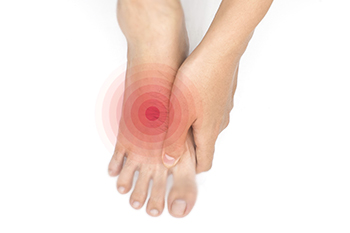6650 Frankford Ave
Philadelphia, PA 19135

Minimally invasive surgical techniques have become valuable in podiatric surgery, offering effective solutions for common foot and ankle conditions with less trauma than traditional methods. These procedures involve small incisions, often under five millimeters, and specialized instruments to address issues like bunions, hammertoes, and bone spurs. By minimizing soft tissue disruption, minimally invasive surgery reduces postoperative pain, swelling, and the need for extensive recovery time, allowing patients to return to daily activities sooner. These techniques are particularly beneficial for patients with underlying health conditions who may not be ideal candidates for open surgery. Using real-time imaging, podiatrists can accurately correct deformities and other structural issues with high precision. Additionally, the reduced risk of infection and scarring makes these procedures attractive for both patients and practitioners. If you are facing the possibility of foot surgery, it is suggested that you consult a podiatrist to see if you are a candidate for this type of surgery.
Foot surgery is sometimes necessary to treat a foot ailment. To learn more, contact John M. Fanelly, DPM of Northeast Philadelphia. Our doctor will assist you with all of your foot and ankle needs.
When Is Surgery Necessary?
Foot and ankle surgery is generally reserved for cases in which less invasive, conservative procedures have failed to alleviate the problem. Some of the cases in which surgery may be necessary include:
What Types of Surgery Are There?
The type of surgery you receive will depend on the nature of the problem you have. Some of the possible surgeries include:
Benefits of Surgery
Although surgery is usually a last resort, it can provide more complete pain relief compared to non-surgical methods and may allow you to finally resume full activity.
Surgical techniques have also become increasingly sophisticated. Techniques like endoscopic surgery allow for smaller incisions and faster recovery times.
If you have any questions please feel free to contact our office located in Philadelphia, PA . We offer the newest diagnostic and treatment technologies for all your foot and ankle needs.

Diabetes significantly affects the feet, often leading to serious complications if not managed properly. High blood sugar levels can damage blood vessels and nerves, reducing circulation and sensation in the feet. This condition, known as diabetic neuropathy, means that injuries like cuts, blisters, or sores may go unnoticed, increasing the risk of infection. Poor circulation in diabetic individuals also delays wound healing, making it more difficult for minor injuries to recover. Over time, untreated wounds can turn into ulcers, which, if infected, may lead to severe consequences, including gangrene or even amputation. Foot deformities, such as bunions and hammertoes, are more common in people with diabetes due to weakened muscles and tendons. Regular foot care, including daily inspections, proper footwear, and regular check-ups with a podiatrist, is essential to avoid complications and maintain foot health in diabetics. For this reason, it is suggested that if you have diabetes, you make an appointment with a podiatrist for routine care.
Neuropathy
Neuropathy can be a potentially serious condition, especially if it is left undiagnosed. If you have any concerns that you may be experiencing nerve loss in your feet, consult with John M. Fanelly, DPM from Northeast Philadelphia. Our doctor will assess your condition and provide you with quality foot and ankle treatment for neuropathy.
What Is Neuropathy?
Neuropathy is a condition that leads to damage to the nerves in the body. Peripheral neuropathy, or neuropathy that affects your peripheral nervous system, usually occurs in the feet. Neuropathy can be triggered by a number of different causes. Such causes include diabetes, infections, cancers, disorders, and toxic substances.
Symptoms of Neuropathy Include:
Those with diabetes are at serious risk due to being unable to feel an ulcer on their feet. Diabetics usually also suffer from poor blood circulation. This can lead to the wound not healing, infections occurring, and the limb may have to be amputated.
Treatment
To treat neuropathy in the foot, podiatrists will first diagnose the cause of the neuropathy. Figuring out the underlying cause of the neuropathy will allow the podiatrist to prescribe the best treatment, whether it be caused by diabetes, toxic substance exposure, infection, etc. If the nerve has not died, then it’s possible that sensation may be able to return to the foot.
Pain medication may be issued for pain. Electrical nerve stimulation can be used to stimulate nerves. If the neuropathy is caused from pressure on the nerves, then surgery may be necessary.
If you have any questions, please feel free to contact our office located in Philadelphia, PA . We offer the newest diagnostic and treatment technologies for all your foot care needs.